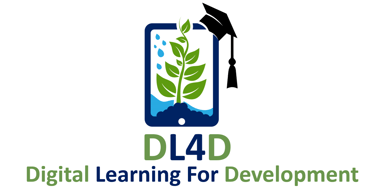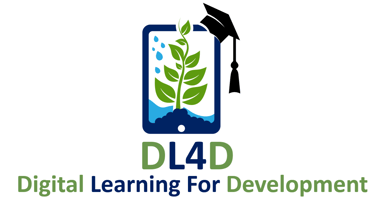Ethical AI - What ? Why ? How ?
The responsible design, development, and application of artificial intelligence systems in ways consistent with human values, justice, and responsibility is known as ethical AI. To make sure AI advances society without endangering it, it places a strong emphasis on openness, privacy protection, inclusion, and reducing bias. Organizations may promote creativity, establish trust, and develop technology that upholds both individual rights and the welfare of society by incorporating ethical concepts into AI.

AI ethics refers to the principles that govern AI’s behavior in terms of human values. AI ethics helps ensure that AI is developed and used in ways that are beneficial to society. It encompasses a broad range of considerations, including fairness, transparency, accountability, privacy, security, and the potential societal impacts. Artificial intelligence systems that prioritize justice, accountability, transparency, and respect for human values are referred to as ethical AI-compliant.
The focus of AI ethics is on how AI affects people, communities, and society at large. Promoting the appropriate and safe application of AI is intended to reduce its new risks and avoid harm.
Four primary verticals when looking at Ethical AI -
· Bias and Fairness – The risk that the system may unfairly disadvantage certain individuals or groups.
· Explainability – The risk that the system or its decisions may be difficult for users and developers to understand.
· Robustness – The risk that the algorithm may fail in unforeseen situations or when subjected to attacks.
· Privacy – The risk that the system may not sufficiently safeguard personal data.
Principles of Ethical AI
Mitigation of Bias and Fairness
AI systems ought to be built with impartiality and nondiscrimination in mind. Algorithms, human interaction, and training data can all introduce bias. To guarantee that AI does not unjustly disadvantage particular people or groups based on characteristics like race, gender, or financial status, ethical AI development necessitates identifying and reducing biases.
Openness and Explain ability
An AI system's decision-making process should be understandable to developers and users alike. While explainability guarantees that AI outputs may be meaningfully interpreted, transparency refers to the openness and documentation of the procedures that underlie AI decision-making. This promotes responsibility and trust in AI systems.
Responsibility and Accountability
AI systems and their effects require accountability from organizations and creators. This entails putting in place monitoring procedures to keep an eye on AI behavior, making sure AI functions within moral and legal bounds, and clearly defining who is accountable in the event that an AI system causes harm.
Data security and privacy
AI should adhere to stringent data protection guidelines in order to respect user privacy. This entails protecting private data, getting informed consent before using it, and making sure AI doesn't reveal or abuse private information. It is crucial to abide by laws like the General Data Protection Regulation (GDPR).
Security & Safety
AI systems need to be built to resist cyberattacks and avoid damage. This entails protecting against unforeseen outcomes, adversarial attacks (in which artificial intelligence is influenced to generate erroneous findings), and system malfunctions that could endanger people in the real world.
Human Supervision or Augmentation
Critical decision-making should not be replaced by AI; rather, it should support humans. Humans should always have the last word in significant choices, especially in high-stakes industries like healthcare, criminal justice, and finance, even though AI can automate work and increase efficiency.
Beneficial Use & Social Good
AI ought to be applied for the good of society and human welfare. This entails making sure AI applications uphold diversity, sustainability, and human rights while preventing harm, exploitation, or the perpetuation of inequality.
How to Implement AI in an Ethical and Responsible Way
Organizations should take several crucial actions to guarantee AI is created and used responsibly:
1. Create Guidelines for Ethical AI
· Describe concepts like accountability, privacy, transparency, and fairness.
· Sync AI development with legal frameworks and industry norms (e.g., AI Act, GDPR).
· Make sure the leadership is dedicated to moral AI practices.
2. Perform Fairness Audits and Bias Assessments
· Determine any possible biases in algorithms, training data, and decision-making.
· Check AI models frequently for unfair treatment of various demographic groups.
· Use techniques like fairness-aware algorithms and diversified data sourcing to reduce prejudice.
3. Assure Explainability & Transparency
· Create AI systems that can make decisions that are comprehensible and interpretable.
· Make use of explainable AI (XAI) approaches to let consumers understand the reasoning behind a choice.
· Clearly describe the constraints, decision-making criteria, and operation of the AI system.
4. Put Strict Security and Privacy Measures in Place
· Observe data protection regulations and make sure AI systems manage personal information appropriately.
· To safeguard sensitive data, use encryption, anonymization, and secure storage.
· Give people control over their data and, if necessary, establish consent procedures.
5. Facilitate Human Oversight & Accountability
· Assign accountability for the actions of AI systems and create distinct chains of command.
· In high-risk applications (such as hiring, law enforcement, and healthcare), make sure human oversight is in place.
· Provide channels for users to challenge or appeal judgments made by AI.
6. Check for Reliability and Robustness
· To avoid failures, validate AI performance in a variety of real-world scenarios.
· Put protections in place against hostile assaults and system weaknesses.
· AI models should be updated often to increase resilience and adjust to emerging threats.
7. Encourage Socially Beneficial & Inclusive AI
· Create AI that is inclusive and accessible to all users, including underrepresented ones.
· Make that AI applications (such as those in healthcare, education, and sustainability) benefit society.
· Steer clear of using AI in ways that could exacerbate inequality or cause harm.
8. Constantly Examine and Enhance AI Systems
· Continuously assess and audit AI performance and ethical adherence.
· To improve AI behavior, get input from stakeholders and users.
· Keep abreast with changing laws, best practices, and ethical standards.
Contact us
Whether you have a request, a query, or want to work with us, use the form below to get in touch with our team.




